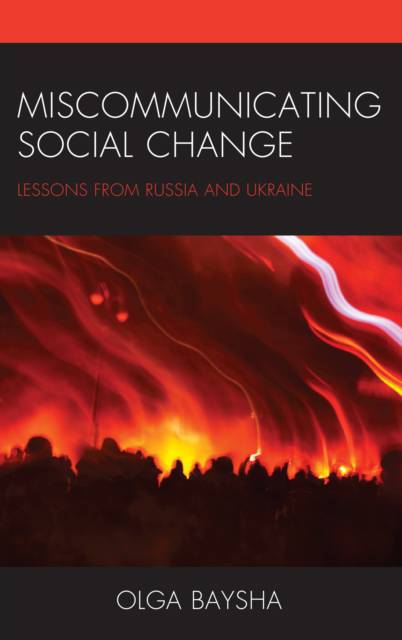
- Afhalen na 1 uur in een winkel met voorraad
- Gratis thuislevering in België vanaf € 30
- Ruim aanbod met 7 miljoen producten
- Afhalen na 1 uur in een winkel met voorraad
- Gratis thuislevering in België vanaf € 30
- Ruim aanbod met 7 miljoen producten
Omschrijving
This open access title analyzes the discourses of three social movements and the alternative media associated with them, revealing that the Enlightenment narrative, though widely critiqued in academia, remains the dominant way of conceptualizing social change in the name of democratization in the post-Soviet terrain. The main argument of this book is that the "progressive" imaginary, which envisages progress in the unidirectional terms of catching up with the "more advanced" Western condition, is inherently anti-democratic and deeply antagonistic. Instead of fostering an inclusive democratic process in which all strata of populations holding different views are involved, it draws solid dividing frontiers between "progressive" and "retrograde" forces, deepening existing antagonisms and provoking new ones; it also naturalizes the hierarchies of the global neocolonial/neoliberal power of the West. Using case studies of the "White Ribbons" social movement for fair elections in Russia (2012), the Ukrainian Euromaidan (2013-2014), and anti-corruption protests in Russia organized by Alexei Navalny (2017) and drawing on the theories of Ernesto Laclau, Chantal Mouffe, and Nico Carpentier, this book shows how "progressive" articulations by the social movements under consideration ended up undermining the basis of the democratic public sphere through the closure of democratic space.
The ebook editions of this book are available open access under a CC BY-NC-ND 4.0 licence on bloomsburycollections.com. Open access was funded by National Research University Higher School of Economics, MoscowSpecificaties
Betrokkenen
- Auteur(s):
- Uitgeverij:
Inhoud
- Aantal bladzijden:
- 246
- Taal:
- Engels
Eigenschappen
- Productcode (EAN):
- 9781498558938
- Verschijningsdatum:
- 18/10/2018
- Uitvoering:
- Hardcover
- Formaat:
- Genaaid
- Afmetingen:
- 155 mm x 231 mm
- Gewicht:
- 544 g

Alleen bij Standaard Boekhandel
Beoordelingen
We publiceren alleen reviews die voldoen aan de voorwaarden voor reviews. Bekijk onze voorwaarden voor reviews.








